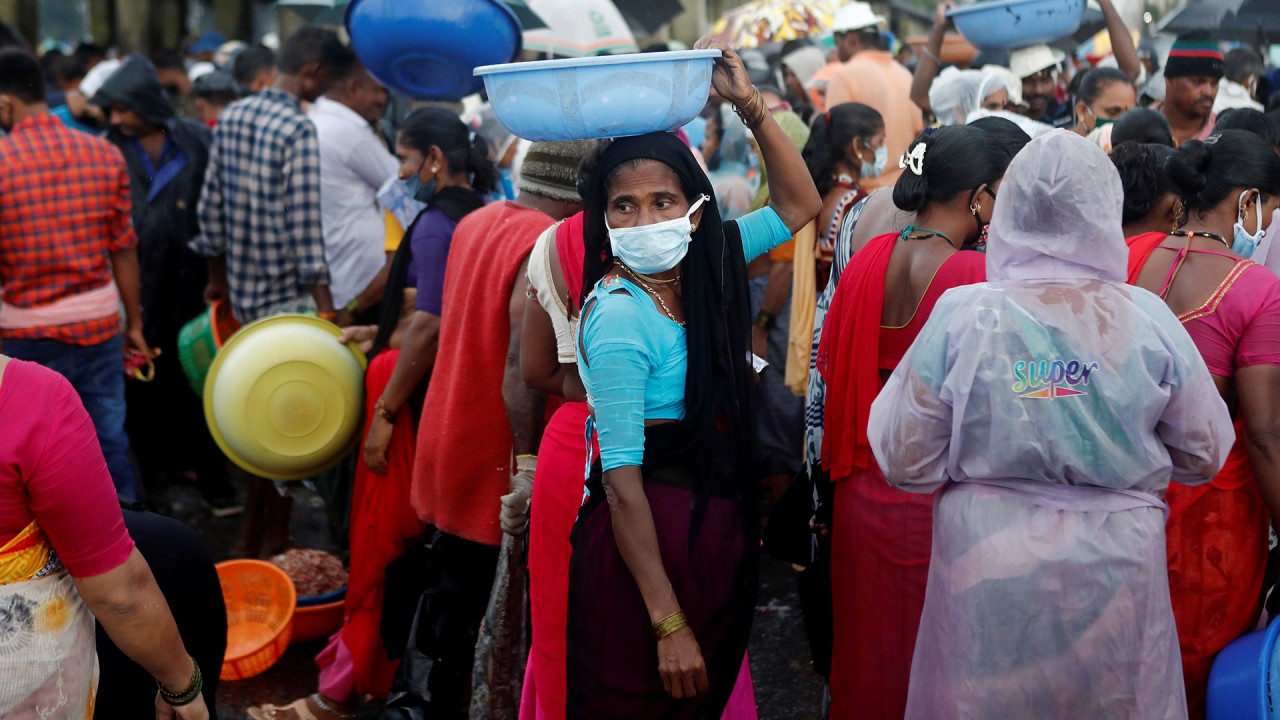
Coronavirus latest: New Zealand to lift curbs; India cases near 5 million
- Restrictions across the country will be removed on September 21, except in hard-hit Auckland
- India’s parliament reopened after more than five months even as the country continues to report the most daily new virus cases in the world
Ardern said Auckland’s restrictions would be reviewed next Monday. She also said the government would immediately ease all physical distancing requirements on planes, a boost for Air New Zealand, which has had to limit passengers on its planes for months.
“I know this change will make a real difference to Air New Zealand and those parts of the country seeking increased numbers of visitors,” Ardern said in a news conference in the South Island city of Dunedin, where she is on an election campaign trip.
Masks will still be mandatory on all public transport, she said.

03:05
India overtakes Brazil with second-highest number of Covid-19 cases, city of Pune national hotspot
Ardern, who is facing a general election on October 17, scaled back the restrictions this month, but the city is still under alert level 2.5, meaning social gatherings of more than 10 people are not allowed.
Ardern cabinet will review the current rules for Auckland at its meeting on September 21, with a view to increase gathering limits if the situation stays stable.
That change, if it comes, will take effect on September 23, she said.
New Zealand on Monday reported one new case of coronavirus in the community, taking the total number of cases to 1,447 and 24 deaths.
‘Product of China’: India snubs China-educated doctors even amid Covid-19
Indian parliament reopens as cases soar
Lawmakers must wear masks and follow other sanitisation protocols, sit on seats separated by transparent plastic sheets and keep their meetings limited. The Question Hour, when lawmakers ask questions to ministers and hold them accountable for the functioning of their ministries, will be not be allowed.
Opposition parties have protested the decision to do away with the Question Hour and are expected to grill the government over its handling of the pandemic, the nosediving economy and simmering tensions with China.
India’s Health Ministry reported a single-day spike of 92,071 confirmed Covid-19 cases on Monday and another 1,136 deaths. India has now recorded 4.85 million infections and more than 79,722 fatalities since the pandemic began.

Australian official gets death threat over border measures
Meanwhile, Victoria, the epicentre of the country’s coronavirus second wave, on Monday reported its lowest single-day rise in new infections in nearly three months.
Officials recorded 35 new Covid-19 cases and seven deaths in Victoria, as a tight lockdown in the state capital of Melbourne was partially eased.
Melbourne was placed under strict lockdown measures in early August after more than 700 cases were detected in Victoria state in a single day.
From Monday, the city’s 5 million residents will be allowed outside for exercise for two hours, double the limit under the original lockdown measures, while a nightly curfew has also been shortened.
Australia has recorded a total of 27,000 Covid-19 infections, including 817 deaths.
Jakarta reimposes partial lockdown
Authorities in the Indonesian capital reimposed a partial coronavirus lockdown on Monday and vowed to strictly isolate anyone testing positive for Covid-19 as infections soared in the metropolis.
Jakarta governor Anies Baswedan said the city would resume large-scale social restrictions for two weeks starting on Monday, calling it a necessary measure to prevent the health system from collapsing.
Non-essential businesses are only allowed to operate at 25 per cent capacity, restaurants can only serve takeaways, and school, parks and tourist spots have been ordered to shut.
Anyone testing positive for Covid-19 – including asymptomatic patients – will have to undergo mandatory quarantine in government facilities, he said.
“If a person who was tested positive refused to be isolated in the designated facility, health workers and law enforcers will pick them up,” Baswedan told a news conference on Sunday.
South Korea infections drop
The daily increase has stayed in the 100s for 12 straight days, but Monday’s increase was the lowest since mid-August. The government on Sunday relaxed its physical distancing guidelines in the Seoul area, citing a downward trend in new infections and economic worries.
The rules effective Monday allow customers to eat and drink inside franchise cafes and bakeries and indoor gyms and after-school academics can reopen. A ban on late-night dining at restaurants was also lifted. Distancing and masks are still required.
Why is Duterte backing under-fire Philippine health secretary Duque?
Health workers oppose Philippines’ move to ease rules
“It’s still too early,” health care Professionals Alliance Against Covid-19 spokesman Antonio Dans said in a virtual briefing on Monday, referring to the timing of the government’s decision to allow more passengers in public transport by gradually easing the 1-metre distancing rule. “Our coronavirus cases will most likely increase, and our recovery will slow,” he said.
The Department of Health said in a statement on Sunday that people should still opt for transport with at least 1 metre of distancing, and “be extra vigilant” if they’re unable to. The Philippines has the highest number of coronavirus infections in Southeast Asia, with over 261,000 cases.
Reporting by Reuters, Associated Press and Bloomberg
